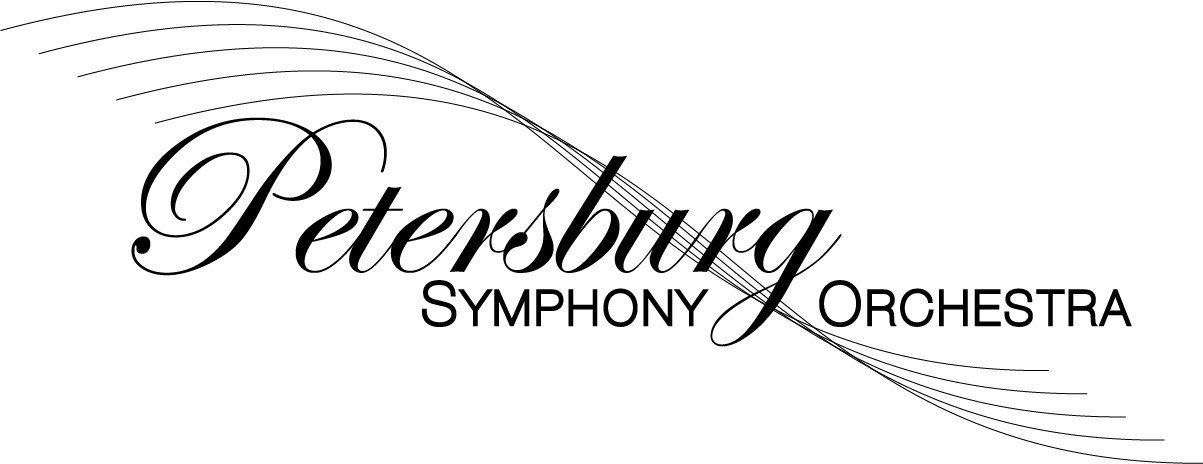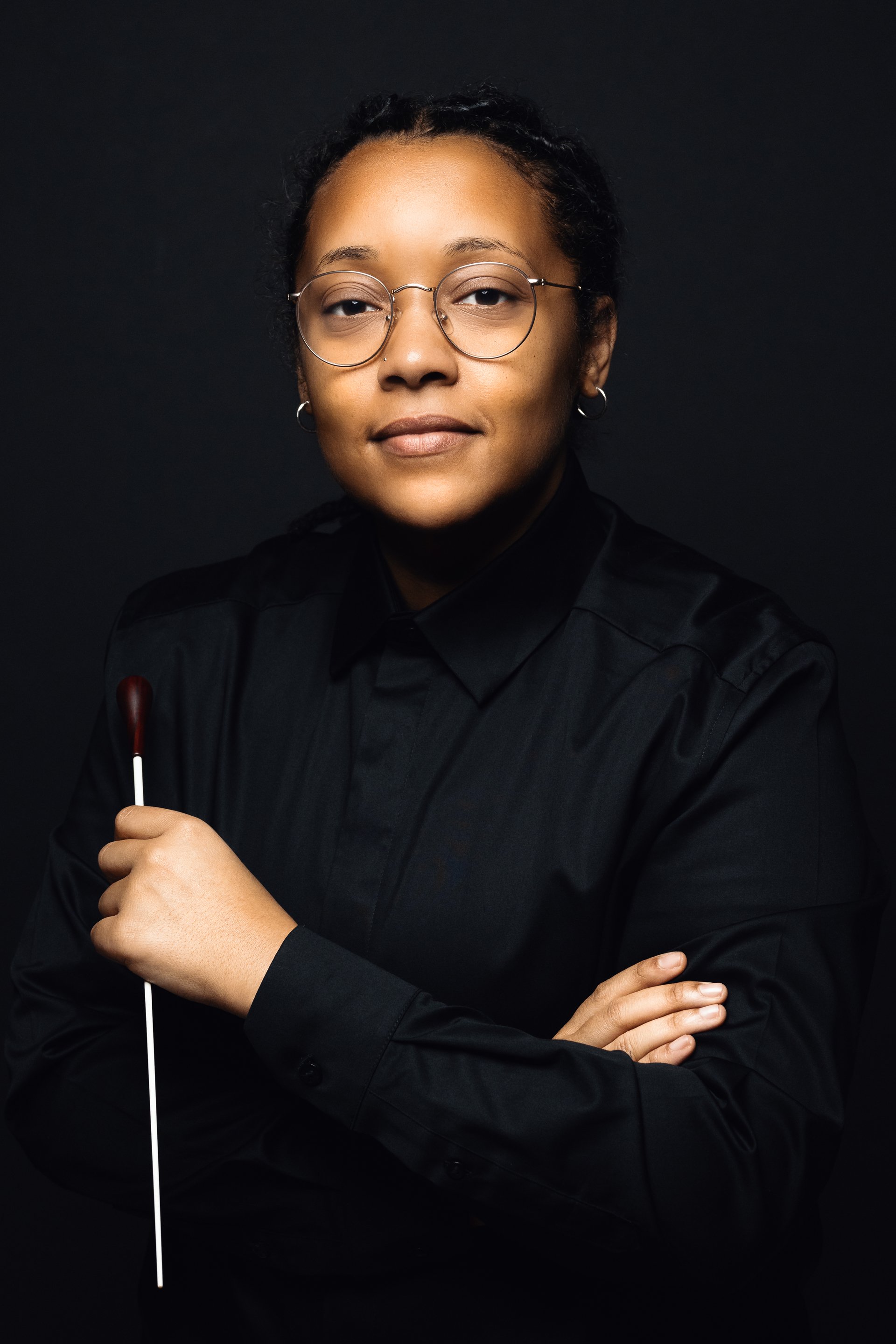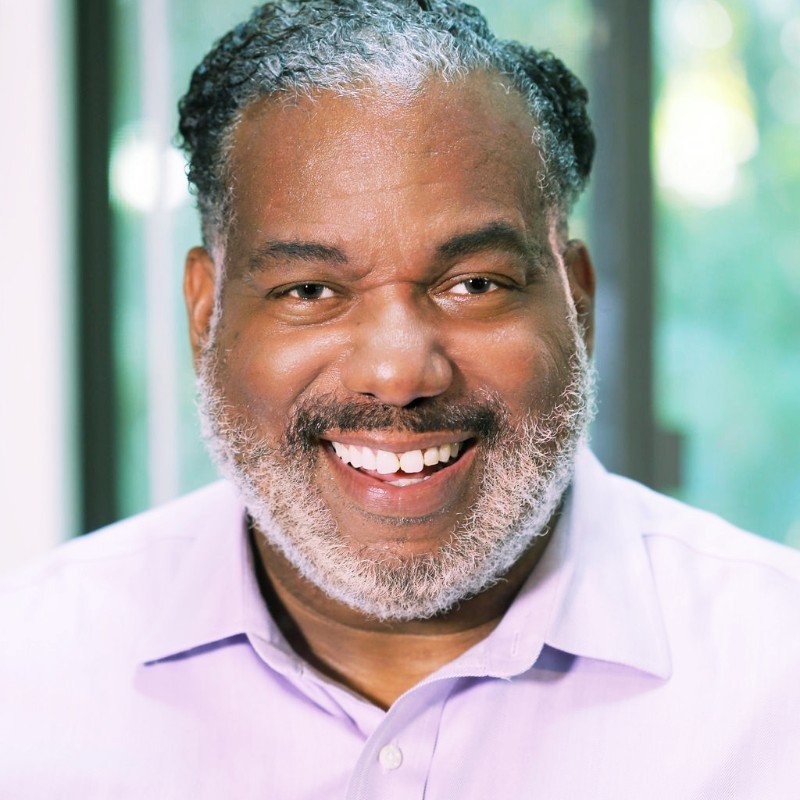Richmond Free Press: Naima Burrs hopes to play to Petersburg Symphony Orchestra’s strengths in new role
Petersburg Symphony Orchestra musicians are gearing up for a new season without the presence of a familiar face—Ulysses Kirksey, their former music director for more than 30 years.
With Mr. Kirksey’s death in August 2021, the orchestra has been working hard to regain its rhythm, according to Brian C. Little Sr., the PSO executive director.
The new season, which begins in March, will feature a new face on the conductor’s podium — Naima Burrs, a 31-year-old violinist and music instructor at Virginia State University. In late January, she was announced as PSO’s new music director.
Ms. Burrs, who was an assistant conductor for the PSO’s holiday concert last December at the Petersburg Public Library Auditorium, has served as assistant conductor of the Hopkins Symphony Orchestra at Johns Hopkins University in Baltimore and, most recently, as conductor of the Hopkins Concert Orchestra.
She is the daughter of soprano Lisa Edwards Burrs, an associate professor of voice at Longwood University, and Stacy L. Burrs, former chief executive officer of the Black History Museum and Cultural Center of Virginia in Jackson Ward and former deputy director of Venture Richmond.
Ms. Burrs said it’s a great time to grow the orchestra’s audience. From virtual concerts to concerts at various public venues, the PSO wants to give the community access to the music that inspires them. She said people shouldn’t feel as if they have to travel to bigger cities and larger venues to broaden their knowledge.
“While it’s important to do standard repertoire, there is so much beautiful music to choose from. We also can make sure (the public enjoys) composers who have not received their (due) recognition—music that showcases contributions of everyone—women, African- American, Hispanic composers and more,” Ms. Burrs said. “This is how we embrace the beauty of America throughout the season.”
Mr. Little said the PSO’s list of performances for 2022 will be released in March following the completion of a new website.
For the last 44 years, the PSO’s contingent of professional and volunteer musicians have thrilled music fans throughout the Tri-Cities. In a pandemic era where stress levels rise and fall by the day, Mr. Little said fans could benefit from the calming properties of live orchestra performances.
“We understand music creates a community that may feel like a social club, a place where people can call home, move away from their struggles, celebrate their triumphs,” he said.
“The symphony has done that. They have provided a place where 60 people can get together, create the oneness of music and sound.”
PSO violinist Lucretia Davis, a Virginia State University music graduate and orchestra director with Hanover County Public Schools, has performed an array of music with the orchestra since 2001. She is confident the PSO’s expansive library of music across genres will help expand the number of performances each year and to grow their audience base.
Like most orchestras, the PSO must maintain the favor of its loyal fans while promoting the music to new fans. Ms. Davis said strong music programs within school systems is key to attracting younger generations to orchestral music and related careers.
She said adult fans of the orchestra should bring youths to concerts where they will begin to see the music and concerts as life-long entertainment. Holding concerts beyond the walls of traditional concert halls has helped the PSO and other orchestras across the country. Ms. Davis recalled a series of past PSO concerts and a traditional holiday concert that helped them connect with their audiences.
“Tailoring programs is one of the strong points of the Petersburg Symphony Orchestra. We, of course, have our die-hard PSO lovers who will enjoy anything we play, but you do have to program to really grow the audience” Ms. Davis said.
She said Mr. Kirksey was always keen with his musical programming for the PSO and selected works that would suit both the venue and the audience he was trying to attract and retain. She gave him high marks, too, for selecting music by local and nationally recognized artists.
“Now, it’s just the continued task of finding innovative ways to keep the audience’s attention,” Ms. Davis said. “I’m sure the new music director will carefully take her time, as well, and continue to thoughtfully prepare works that highlight the talents of the musicians, yet excite our audiences.”
Culture Works Spotlight:
Naima Burrs on Patience & Preparation
June 2022
Photo: Daniel Jones
In a technological world where so much is on-demand, patience and preparation can prove to be valuable instruments in your art practice. In between conducting, instructing, and getting ready to study for two weeks in Canada, Naima Burrs, Musical Director of the Petersburg Symphony Orchestra took a moment to share this wisdom with us and reflect on the dynamic path that has brought her to where she is today.
CW: Who are you and what is your current background in music?
Naima Burrs: My name is Naima Burrs and I am a conductor and violinist based in Richmond, Virginia. I did my undergraduate studies at VCU, and received a Master of Music degree from the University of Northern Iowa. I serve on the faculty at Virginia State University as a full-time instructor of violin and conducting, as well as Music Appreciation and other general education music courses. During the 2021-2022 concert season, I served as the Assistant Conductor of the Hopkins Symphony Orchestra and the Conductor of the Hopkins Concert Orchestra at Johns Hopkins University in Baltimore, MD. In January of 2022 I was appointed Music Director of the Petersburg Symphony Orchestra in Petersburg, VA. I am currently pursuing a Doctor of Musical Arts degree in instrumental conducting at The Catholic University of America in Washington, D.C.
CW: Tell me a bit about your relationship to your creative work as a violinist & conductor! How did it get started for you?
NB: I’ve been “around” music for my entire life. My mother is a professor of music and a soprano soloist who always had a very vibrant performing career; so, I was exposed to a lot of wonderful music early on. From recitals to operas; I attended many rehearsals for various events which I can remember enjoying very much!
My formal musical training started in elementary school. I began piano at an early age, but it wasn’t until the Richmond Symphony (string quartet) visited my school that I fell in love with string instruments—more specifically, the violin. I remember hearing it and thinking, “I HAVE to play that!”. My own personal experience is proof that music education and exposure is incredibly important and can truly change a young person’s life.
My interest in conducting “began” during my undergraduate studies at VCU with my wonderful teacher, Daniel Myssyk. I was always inspired by my orchestra conductors, having been blessed with wonderful examples of competency and leadership as well as curiosity and kindness. I was always intrigued by the effect that a conductor can have on an ensemble (positively and negatively), and after a semester of conducting class and a semester of private study, I realized that I wanted to pursue conducting more seriously.
CW: What is your current process for getting into the mindset of making or conducting music?
NB: For musicians, it’s all in the preparation. As an instrumentalist, it’s always great to understand the work that you are performing by exploring and researching the composer/piece historically, while also analyzing the music components that make the work what it is. As a conductor, this type of analysis and understanding is absolutely necessary. It’s our job to really get into the mind of the composer and the compositional process that took place to create the work. A lot of my time is spent exploring those details to make sure that I have a handle on the music and the various components so that I am able to lead an ensemble in a way that helps to show the important and meaningful aspects of any given piece. As an instrumentalist in an orchestra, when I’m playing violin for example, it’s my job to know my part and how my part fits into the overall symphonic fabric as an important part of the overall whole.
This takes time and experience; some of the world’s top orchestra members have played certain works dozens of times, and each time they have probably discovered something new. The same for conductors. As a musical artist, of course, this type of exploration is endless and is certainly a lifelong quest, but if you are able to let your curiosity guide you there are so many wonderful and beautiful jewels you can uncover.
CW: How have you felt your work connect to the community of Petersburg since you have been teaching/conducting in the area?
NB: I can feel a sense of excitement in the air when it comes to the future of the Petersburg Symphony Orchestra (PSO) and its place in the community. With our new agreement between the PSO and VSU, we have many opportunities available for students to get hands-on experience in working with a performance ensemble. It means a lot for us to offer our students the chance to learn and grow by putting their skills to the test. For me, as a teacher, it means a lot to watch my students perform in the ensemble and for my conducting students to have a chance to observe rehearsals and study the music that the orchestra is preparing.
I’ve had the chance to work with and coach the orchestra at my alma mater, the Appomattox Regional Governor’s School for the Arts and Technology in preparation for their assessments, and I look forward to working more with them and other schools in the area.
The energy in the room was electric at our most recent PSO performance in the spring. We were able to do a Virginia premiere of a work by a young African-American woman composer, Jasmine Barnes, who is based in Maryland. I felt proud to present that work by a living composer and to share it with our community. It feels really special to have the chance to connect with community members after a performance and to hear about their excitement for the future, and their commitment to supporting their local treasure that is the Petersburg Symphony Orchestra. I feel honored to follow in the footsteps of Dr. Gatlin, the founder, and the long-time conductor Maestro Kirksey. My ultimate goal is to continue their efforts in making sure that the PSO is a strong and meaningful cultural resource ALL who wish to experience it.
Petersburg Symphony Orchestra
CW: Have you collaborated with any other artists/spaces recently that were meaningful for you?
NB: I was invited, (and HONORED!) to be the commencement speaker for the graduating class of 2022 at the Appomattox Regional Governor’s school, which was pretty special for me, as it is my alma mater and somewhere that holds a very dear place in my heart!
I spent the spring working on and filming a children’s show, as the guest on Songs and Stories with Mary and Mike, about the life and work of a conductor, featuring the music by living composer Maria Thompson-Corley. That will be aired on PBS/VPM in the fall. Being able to connect with kids and hopefully successfully showing them that they can do anything or be anything they wish to be is a very special and meaningful responsibility for me. We are really looking forward to sharing this with families everywhere!
But honestly, as an artist, I feel privileged to have MANY meaningful collaborations. I really believe that every situation has the potential to teach us something valuable; it’s just our job to be open enough to receive the lesson.
CW: What advice do you have for young artists interested in conducting or teaching music?
NB: It sounds simple but I will always say it: Stay true to yourself!
Find your voice and do not be afraid to stand out. We are all so unique and each have something special to offer. Instead of getting stuck in the comparison game (which is easy to do!), find your special gifts and lead with that. When it comes to music/conducting/teacher/performing, realize that it is a lifelong journey and I think that that helps to take a little pressure off. We are so used to having everything on demand by living in such a technology driven society and world, but the journey of being an artist comes with many peaks and valleys, successes, and what might also feel like defeats, but keep the faith in what you know to be true and let your passion lead the way. Lastly, it is possible to be serious about your craft and career while still being kind and genuine. Networking and creating lasting relationships are so important and will help sustain you, in my opinion.
Photo: Joey Wharton
CW: What feeds your creativity when you are not actively working in music/how do you overcome artistic blocks?
NB: I enjoy spending time with my friends and family, and I love being in nature and exploring. Going for walks/hiking and being inspired by the world around us, away from technology, responsibilities, and deadlines is how I refuel. I also am a huge tennis fan (go Serena!!!) , and enjoying playing when the weather is warm enough. Listening to music other than what I am preparing/outside of the “classical” genre, and attending live shows!
CW: What do arts and culture mean to you? Why does it matter?
NB: Arts and culture mean everything to me. It’s interesting because we all know what we value, for the most part, but sometimes you don’t realize how much something means to you until it is taken away….
In 2020, when we had to begin doing things from home, and gigs and performance opportunities were getting canceled, and we were unable to get together to create the art that we live to create; it was a true shock to say the least. With the overwhelming amount of death and sickness, of course it was understood. But what I love the most is that instead of accepting it as defeat, artists all around the world found ways to share their gifts, to help heal the world; to connect communities.
Society needs art. Society needs culture. That’s what keeps us going, and it’s something that we can all connect on; it heals us. Which puts an emphasis on the fact that art and culture should be accessible to ALL people and children should have a chance to experience and participate in art and music in every community; I really believe that access to the arts and culture should be viewed as a basic human right. That’s one of the many things that makes this work so fulfilling; having the opportunity to share the true power of music to hopefully make a meaningful impact.
To learn more about Naima: https://www.naimaburrs.com/
To stay updated with Naima: https://www.instagram.com/naimaburrs/



